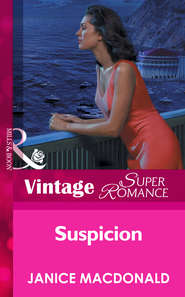По всем вопросам обращайтесь на: info@litportal.ru
(©) 2003-2024.
✖
The Man On The Cliff
Автор
Год написания книги
2018
Настройки чтения
Размер шрифта
Высота строк
Поля
“God, I’m sorry,” he said. “I didn’t mean to scare you.”
Kate stared at him. Even as the adrenaline rush of fear slowly faded, the scream still rang in her ears. She took some deep breaths. He was probably about her age, mid-thirties, tall and slender. He wore a rough woolen jersey, unraveling slightly at the neck, and an open sheepskin jacket, dark with moisture. A couple of cameras were slung around his neck, a leather gadget bag over one shoulder. A smile flickered tentatively across his face.
“Are you all right?
“I’m fine.” Given her panicky state a few minutes earlier, the presence of this complete stranger was oddly reassuring. “It’s kind of deserted out there, I don’t see a soul for a couple of hours. Then I see two people in the fog. One of them disappears and then the other, and suddenly you’re at my window.” She managed a shaky laugh. “Another minute and I’d have had my can of Mace out.”
“Would you now?” The faint smile appeared again. “But what if I’d been wanting to help you? Which I was.”
“I’m naturally suspicious,” she said, distracted momentarily by his eyes. Pale as the fog and fringed with dark lashes, they seemed focused on something beyond her shoulder. In a split second, though, she realized they were actually watching her. It was disconcerting. Like looking through a one-way mirror and finding someone looking back at you.
Moments passed. She stared through the open passenger window at him. He gazed into the car at her.
“Did you see anyone out there on the edge of the cliffs a few minutes ago?” she asked, thinking again of the disappearing figures.
“I didn’t. But I was supposed to meet a girl up here at six…” His glance took in the mist-shrouded landscape, then he looked at Kate again. “I was beginning to think I’d been stood up, but maybe it was her you saw. A few minutes ago, you say?”
She glanced at the dashboard clock, then up at him and felt vaguely envious of the girl who’d stood him up. “About that, I guess.”
“Did she have long fair hair?” he asked.
“I don’t even know if it was a girl. I just saw two people. One was smaller, I assumed it was female. She—if it was a she—wasn’t alone, though.”
“Right.” He studied her face for a moment. “Well, I’ll take a look around then. Maybe she’s just late.”
Kate eyed the cameras slung around his neck. The breast pocket of his jacket bulged with what she guessed was film and, in a lower pocket, she could see the corner of a green-and-white carton. “You’re shooting a new Waldo book? Find Waldo in the fog?”
He gave her a blank look.
“Waldo? Little blue-and-red-striped figure? You have to find him in a page of… Never mind. I was just curious about what kind of pictures you could take under these conditions.” The thought flashed through her brain that she wanted to prolong this encounter.
“It isn’t ideal,” he said, “but there are certain settings and film speeds that compensate.” He leaned into the window a little. “Listen, I’m sorry I frightened you just now.”
“You didn’t frighten me.” She met his eyes. “You startled me.”
“Ah.”
“There’s a difference.”
“Right, of course. I didn’t mean to suggest…” He shifted his bag to the other shoulder. “Can I do anything? Your car’s running all right, is it? You’re not out of petrol?”
“No.” Kate took another look at the clock. It was five minutes to six. “Am I headed the right way for Cragg’s Head?”
“You’re almost there,” he said with a smile. “But I’ll draw you a little map in case. It can be a bit tricky.”
She watched as he reached into his inside pocket and pulled out a notepad. Something metallic fluttered to the ground.
She craned her head to see better and caught a glimpse of a thin gold chain. As he reached to pick it up, she saw a gold letter she couldn’t make out. Briefly their eyes met, then he shoved the locket in his pocket and finished drawing the map.
“All right, here’s what you do,” he said. “It’s five minutes at the very most. Follow the road to Ballyconneely. You can’t miss it.”
A REASSURANCE THAT probably fell into the realm of Irish mythology, she decided thirty minutes later as green fields and more stone walls gave way to a village and a jumble of signposts, not one of which pointed to Cragg’s Head. She braked to let a couple with a stroller cross the street, her eye momentarily caught by a shop window’s picturesque clutter of paraffin stoves, candles and Wellington boots.
At the next village, she slowed the car, rolled down the windows and called out to an elderly woman in a raincoat and elastic stockings.
“Hi.” She smiled. “I’m trying to get to Cragg’s Head, and the last guy I asked told me to follow the road for Ballyconneely. He said I couldn’t miss it, but I guess I did.”
“Cragg’s Head is it?” The woman peered through the driver’s window. “Sure, well it’s easy enough, but there’s been a bit of signpost twisting going on, so things aren’t always what they seem, if you know what I mean.” She shifted a bulging string bag to the other hand. “Give me a minute to think.”
Kate waited.
“Right then.” The woman’s eyes briefly registered the cake crumbs and candy wrappers on the passenger seat, then she looked back at Kate. “Here’s what you do. D’you see that church over there?”
Kate craned her neck to look in the direction the woman was pointing. At the bottom of a hilly street that wound and bumped down to the water, she saw a small stone building with a Celtic cross. “Sure.”
“Pay no attention to it. You’ll be going in the opposite direction.”
“Ah.” Kate bit her lip.
“Go right and you’ll pass a… Oh, wait now, you can’t go that way anymore.” The woman thought for a moment. “Righto then, here’s an easy way, you can’t miss it…”
The directions would be wrong. Kate knew that, even as she steered the Peugeot up the hill the woman had indicated. “You can’t miss” was like “Trust me.” You always did and you never should.
LONG AFTER HE’D packed his camera gear back into the Land Rover, Niall Maguire found himself thinking about the woman in the car. What, he wondered, was an American woman, apparently traveling alone, doing in western Ireland in February? Despite Annie Ryan’s efforts at the tourist office, Cragg’s Head wasn’t exactly a sought-after destination.
Back in the mid-1800s, the town had been a commercial center, but more recently it was trying to reinvent itself as a tourist destination. A few bed-and-breakfasts had sprouted up, and from May to August there were quite a few tourists milling about. By autumn, though, accents in the village were strictly local.
To his mind, the summer tourists missed a lot. Sure, the weather was warmer in July and the flowers were out, but it was an easy, uncomplicated prettiness. Niall far preferred winter’s dark melodrama. The white foam of the Atlantic during a winter storm. Stars distant and bright in the wind-scoured sky. The swift fall of darkness.
Thoughts drifting from one thing to another, he drove slowly along the length of Cragg’s Head Walk. Earlier in the day, he’d done a photo shoot near Roundstone. A collection for one of those big, glossy books Americans put on their coffee tables. Ireland’s relics. Ruined keeps and towers, roofless cottages and abbeys. Everything moss smothered and ivy strangled.
In the gusting wind, he’d climbed a small drumlin to take pictures of the disused graveyard where, as children, he, Moruadh and Hughie Fitzpatrick had played hide-and-seek among the gravestones. One hot summer day, Moruadh had lain very still on one of the marble slabs, telling them to pretend she was dead.
Today, he’d used nearly a roll of film on an old woman, her body bent into the wind, her clothes the colors of the earth and bogs. But his thoughts had returned to that summer day and a girl in a red cotton dress. Finally, his concentration shot, he’d packed up and moved to another spot.
As he turned into the Market Square, an image of the American flashed across his brain. With her red hair and green eyes, she could be Irish, but her accent and demeanor gave her away. In Dublin, he could spot Americans a mile off. A certain self-confidence about them. I’ve a right to be here, they seemed to say. Still, he’d noted the way fear had pinched her nose, giving lie to her bravado. Her bitten nails said something, too.
Slowly, he drove along the harbor, past the courthouse and jail. Moments later, he pulled up outside the Pot o’ Gold, the bed-and-breakfast run by Annie Ryan—when she wasn’t working at the tourist office. Once it had been a convent run by the Mercy Nuns and then, much later, an orphanage. By the time he was born, the place was long disused and abandoned, but that had never stopped his old man from threatening to pack him off there with just the clothes on his back.
All done up now with lace curtains and amber lights in the windows, but Niall could still recall the cold, hollow fear that had gripped him as he’d stared up at the blank windows. Watching for the boy-eating rats that he’d been told lived inside.
Slowly, it had dawned on him that his wailing and begging and tearful promises to behave himself had quite entertained the old man and that a sure way to prolong the ordeal was to let on that he was scared. He’d learned to hide his fear by pretending to himself that it wasn’t really him standing there. That it was all happening to someone else, and he was just a bystander.
A twitch of the curtains broke his reverie, and he got out of the car and walked up the pathway. Given the speed with which Annie Ryan answered his knock, she’d evidently been at the window. Her hand went to her throat, and her eyes registered his mud-splattered boots. A lamp behind her cast an amber glow.
“What can I do for you, Mr. Maguire?”
“I was looking for Elizabeth Jenkins. I have it right, do I? This is where she’s living?”











